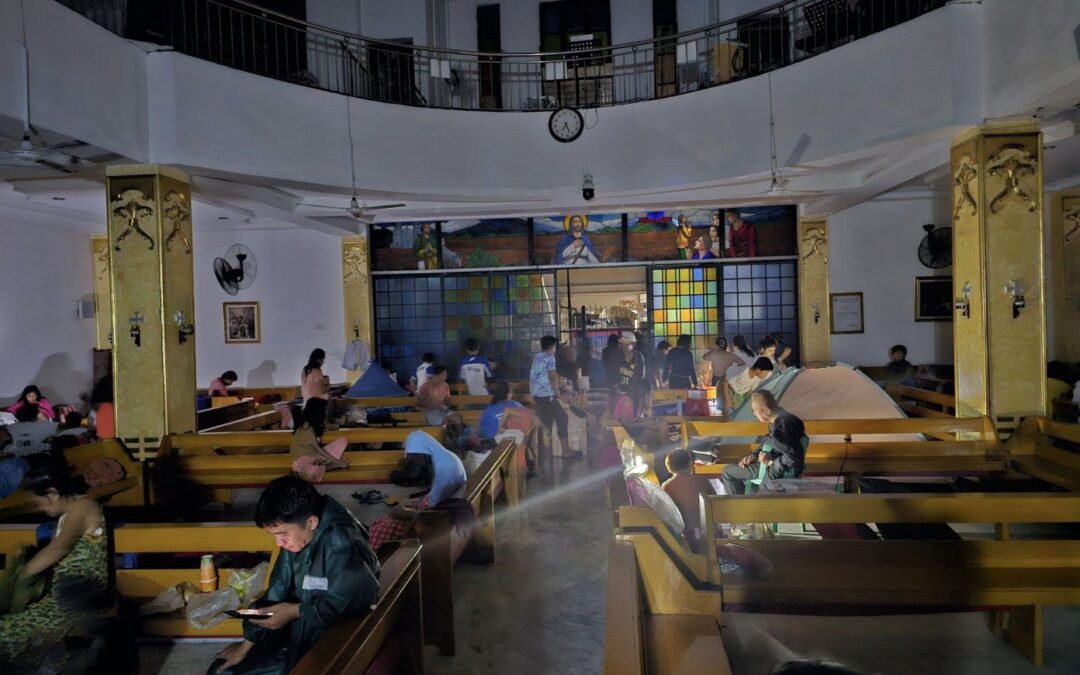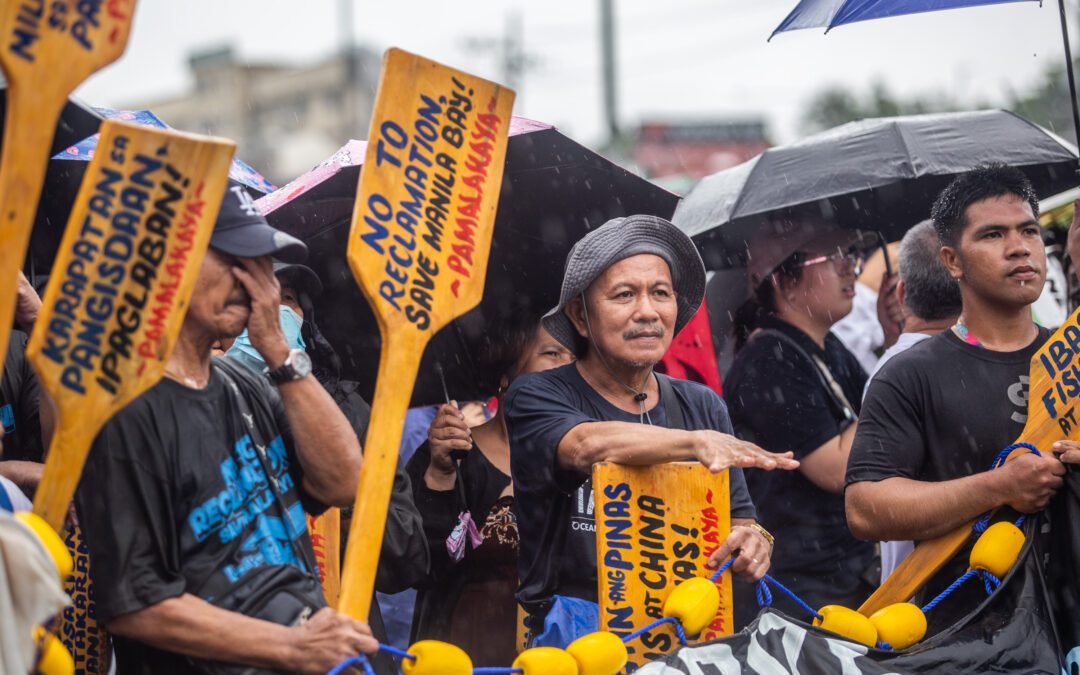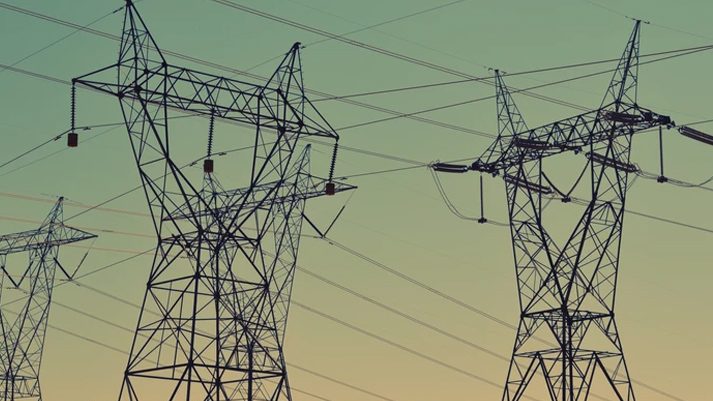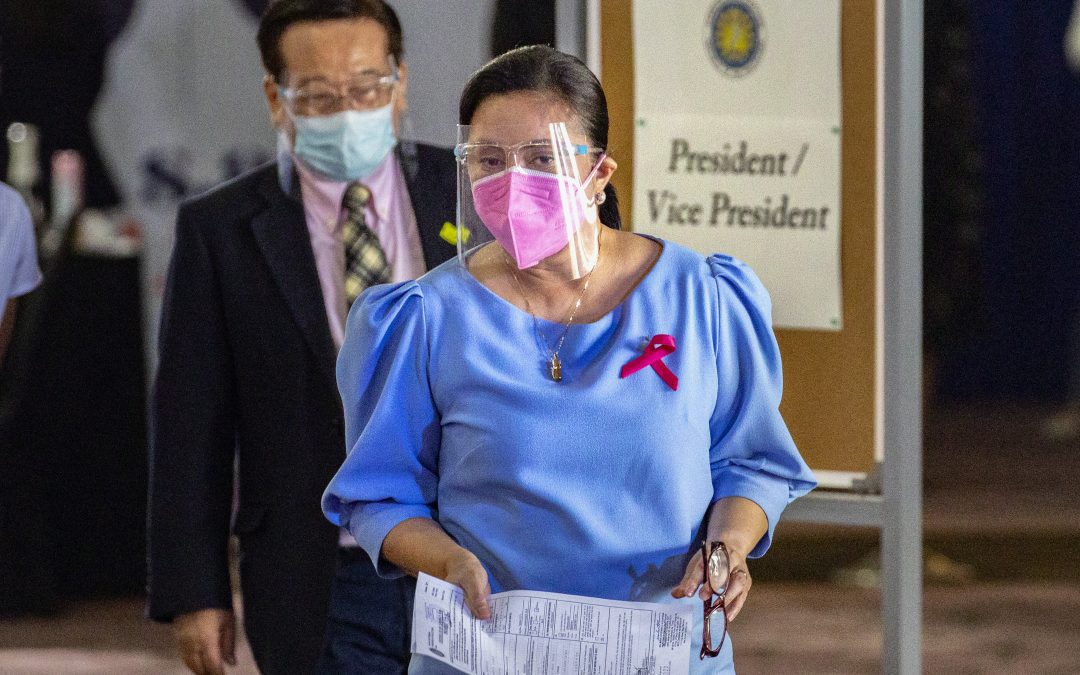The true state of the Filipino nation cannot be described without addressing the national and local realities brought about by the climate crisis. It remains the biggest single threat to our pursuit of sustainable development today and in the decades to come.
The first year of the administration of Ferdinand Marcos, Jr. highlighted the climate crisis as one of its main priorities. While there have been a few improvements in policies and solutions being implemented, the overarching strategy for climate action is still incoherent, insufficient, and incompatible with what is required for the Philippines to achieve both its climate and development goals.
We reiterate that the government’s current direction for energy security is simply not aligned with established climate and even energy targets. Expanding the use of fossil gas without proper plans for phasing them out not only compromises our country’s ability to reduce greenhouse gas (GHG) emissions by 2030 and 2050, but also recreates economic conditions that largely contributed to the current coal-dominated power sector being inflexible to respond to times of crisis and producing expensive electricity. Exploring nuclear energy as a baseload source poses tremendous risks to communities, not to mention diverting crucial resources that otherwise could have been used to fast-track the necessary growth of the renewable energy (RE) sector.
We also highlight the lack of a strong just transition framework in many of the administration’s proposed solutions with co-benefits for our climate goals. This is exemplified by its energy policy agenda, wherein the potential dependence on gas and nuclear could pose short and long-term threats to nearby communities and ecosystems. This can also be seen in the Public Utility Vehicle Modernization program and proposals for the growth of the mining industry; the latter has repeatedly come at the expense of local residents and their environment, through unsustainable and negligent practices by mining companies.
It is baffling that there is still no defined comprehensive pathway for the Philippines to reduce its GHG emissions. Despite formally committing to lower pollution by 75 percent within the current decade through its first Nationally Determined Contributions (NDCs), the Filipino nation remains largely in the dark about how exactly the government plans to attain this through mitigation and adaptation.
The reality remains that the Philippine government’s performance for addressing the climate crisis is still not enough.
This is also true at the global level, where collective pledges are still far from what is needed to limit global warming to at most 1.5 degrees Celsius, the ideal goal under the Paris Agreement. Without developing nations like the Philippines successfully pressuring developed countries, who largely caused the climate crisis through their centuries of polluting our planet, to lower their emissions and give us the finance, technologies, and other modes of support we need to properly implement our planned actions, we will remain highly-vulnerable to this crisis for decades to come.
Aside from dealing with long-term impacts on our economy, environment, health, and society, the next 12 months projects to be possibly perilous for millions of Filipinos. Not only are we at the early stages of the wet season that brings with it the threat of destructive typhoons; we are also confronted by the beginning of a projected strong El Niño, with the last iteration of this phenomenon in 2015 and 2016 causing droughts that greatly affected our agricultural sector and water supply.
Ahead of the 2023 State of the Nation Address (SONA), we call on the Philippine government to commit to an overarching climate action strategy that avoids following the pollutive pathways, contradicting policymaking, and exclusive decision-making that brought us this crisis to begin with.
We specifically call for the following commitments and actions to be made by the Marcos administration:
1. The NDC Implementation Plan and the NDC Monitoring, Review, and Validation Plan should be finalized, including the publication of the national decarbonization pathways that are 1.5-degree compatible, and the full list of mitigation measures, their respective targets and timelines.
2. Ahead of the next updating of the NDC, the Philippines should commit to a net-zero emissions target by 2050, as a sign of its commitment to contributing to slowing down global warming to 1.5 degrees Celsius.
3. The National Adaptation Plan and the updated National Climate Change Action Plan, the Philippines’s primary policy documents for adaptation and resilience-building, should also be finalized. These plans should also be accompanied by strategies for further mainstreaming solutions to the local level, as reflected in their respective Local Climate Change Action Plan, the Philippines’s primary policy documents for adaptation and resilience-building, should also be finalized. These plans should also be accompanied by strategies for further mainstreaming solutions to the local level, as reflected in their respective Local Climate Change Action Plans.
4. The People’s Survival Fund should be made more readily accessible to the most vulnerable municipalities to implement their adaptation projects, while ensuring that they are provided with technical support and capacity-building from climate and development experts. To ensure that the resources are efficiently used, the prioritization for PSF support and assistance must include the identified 22 provinces by CCAM-DRRM Cabinet Cluster that are vulnerable to the impacts of climate change.
5. The Philippines should avoid the expansion of the use of natural gas and depending on nuclear energy, especially without clear phaseout and just energy transition strategies that would be needed to ensure the development of the RE sector in the country. The country must also reject waste-to-energy projects, one of the most carbon-intensive ways of energy generation, as well as plastic-to-fuel technologies which perpetuate dependence on fossil fuels.
6. Anticipatory measures must be utilized to minimize losses and damages caused by the projected strong El Niño and potential typhoons, especially to strengthen food security and water sufficiency, and protect the well-being of the agricultural sector. This includes non-economic losses and damages like the health impacts of climate change, which would have far-reaching economic implications for households, health systems, and entire countries. Specific measures must include strategies to address and mitigate the health-related consequences, such as increased healthcare costs, reduced workforce productivity, and strain on healthcare infrastructure.
7. Adaptation plans should be enhanced to facilitate both on-farm adaptive response and long-term sectoral transformation to reduce losses and damages from recurring and increasingly severe climate shocks. Sufficient funding should be allocated towards innovations to reduce emissions, foster sustainable productivity growth, and ensure emergence of new mitigation technologies and new varieties and breeds more resistant to extreme events. Financial and technical support to smallholder farmers must be significantly increased through research and development, providing incentives for them to participate in a low-emissions transition, and enacting proper policies that protect their rights and well-being.
8. The Philippines should actively influence the establishment of the global loss and damage funding facility, a decade after the landfall of supertyphoon Yolanda on its shores. Among the many calls it must champion at the negotiating table is that the funds from said facility must be given to the most vulnerable nations and communities with ‘no strings attached’, without adding even more burden that would hinder our pursuit of development.
9. The Climate Accountability Bill must be enacted to amend and/or strengthen current frameworks for holding businesses accountable for potentially pollutive actions that threaten our right to a clean, healthy, and sustainable environment. This bill would also establish a national loss and damage compensation fund that would further reflect our nation’s role as an initiator of positive change.
10. Just transition should be integrated into existing climate-related laws and policies across the sectors of agriculture, waste, industry, transport, forestry, and energy to ensure no one will be left behind in the inevitable transformation of our economy and society towards a climate-resilient state. Among the priorities should be ensuring a just minerals transition, where strong environmental and social safeguards are in place, within government plans for reforming minerals governance in the country, through actions such as passing the proposed Alternative Minerals Management Bill.
11. The Philippine government should further enhance mechanisms for more inclusive climate decision-making, from updating national plans and strategies to developing positions and representing the country at the global climate negotiations. These steps must abide by guidelines set under existing laws and building on the gains made in this aspect during the first year of the current administration.
12. Recognizing the contribution of plastics to the climate crisis and plastic pollution’s aggravation of climate change impacts, policies must be enacted to mandate corporations to reduce plastic production and their use of single-use plastics.
13. Nature-based solutions and ecosystem-based adaptation through blue and green infrastructures and/or a combination of these must be the target trajectory of ecological resilience-building programs of the present administration. Communities vulnerable to flooding, sea-level rise, and inundation must gear towards natural flood management led by the communities for long-term solutions to flooding, instead of relying heavily on gray infrastructures that are not incorporating landscape risks. Mechanisms should also be modified to ensure that ecosystems and the communities that directly depend on them do not have to endure additional risks born out of negligence, as most recently exemplified by the MT Princess Empress oil spill.
We remain committed to our mandate of advocating for climate and environmental action towards a healthy, inclusive, just, resilient, and sustainably-developed Philippines. We also reiterate our willingness to continue with the Philippine government, our partner organizations and communities, and other stakeholders for the fulfillment of our mandate in the years to come.






0 Comments